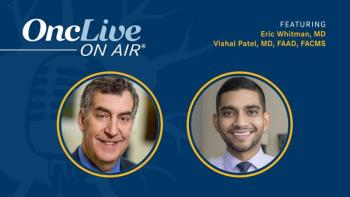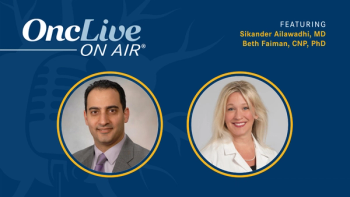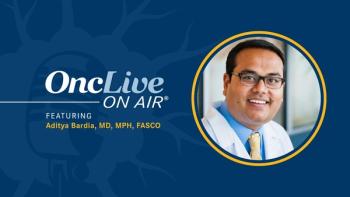
Paik Provides Insights Into Tepotinib Treatment in NSCLC Harboring MET Exon 14 Skipping Alterations

Dr Paik discusses the VISION trial of tepotinib in NSCLC harboring MET exon 14 skipping alterations and real-world data from the TOGETHER pooled analysis.
Welcome to OncLive On Air®! I’m your host today, Ashling Wahner.
OncLive On Air is a podcast from OncLive®, which provides oncology professionals with the resources and information they need to provide the best patient care. In both digital and print formats, OncLive covers every angle of oncology practice, from new technology to treatment advances to important regulatory decisions.
In today’s episode, sponsored by Real Chemistry, we had the pleasure of speaking with Paul K. Paik, MD, about the use of tepotinib (Tepmetko) in patients with non–small cell lung cancer (NSCLC) harboring MET exon 14 skipping alterations. Dr Paik is the clinical director of the Thoracic Oncology Service at Memorial Sloan Kettering Cancer Center in New York, New York.
In our exclusive interview, Dr Paik discussed key findings from the phase 2 VISION trial (NCT02864992) investigating frontline tepotinib in patients with NSCLC harboring MET exon 14 skipping alterations, real-world data from the TOGETHER pooled analysis of tepotinib vs other frontline treatment options in this patient population, and insights regarding treatment sequencing with tepotinib in pretreated patients in this population.
___
That’s all we have for today! Thank you for listening to this episode of OncLive On Air, sponsored by Real Chemistry. Check back on Mondays and Thursdays for exclusive interviews with leading experts in the oncology field.
For more updates in oncology, be sure to visit www.OncLive.com and sign up for our e-newsletters.
OncLive is also on social media. On Twitter, follow us at @OncLive. On Facebook, like us at OncLive, and follow our OncLive page on LinkedIn.
If you liked today’s episode of OncLive On Air, please consider subscribing to our podcast on Apple Podcasts, Spotify, Google Podcasts, Amazon Music, and many of your other favorite podcast platforms,* so you get a notification every time a new episode is posted. While you are there, please take a moment to rate us!
Thanks again for listening to OncLive On Air.
*OncLive On Air is available on: Apple Podcasts, Google Podcasts, Spotify, Amazon Music, Audacy, CastBox, Deezer, iHeart, JioSaavn, Listen Notes, Player FM, Podcast Addict, Podchaser, RadioPublic, and TuneIn.




































